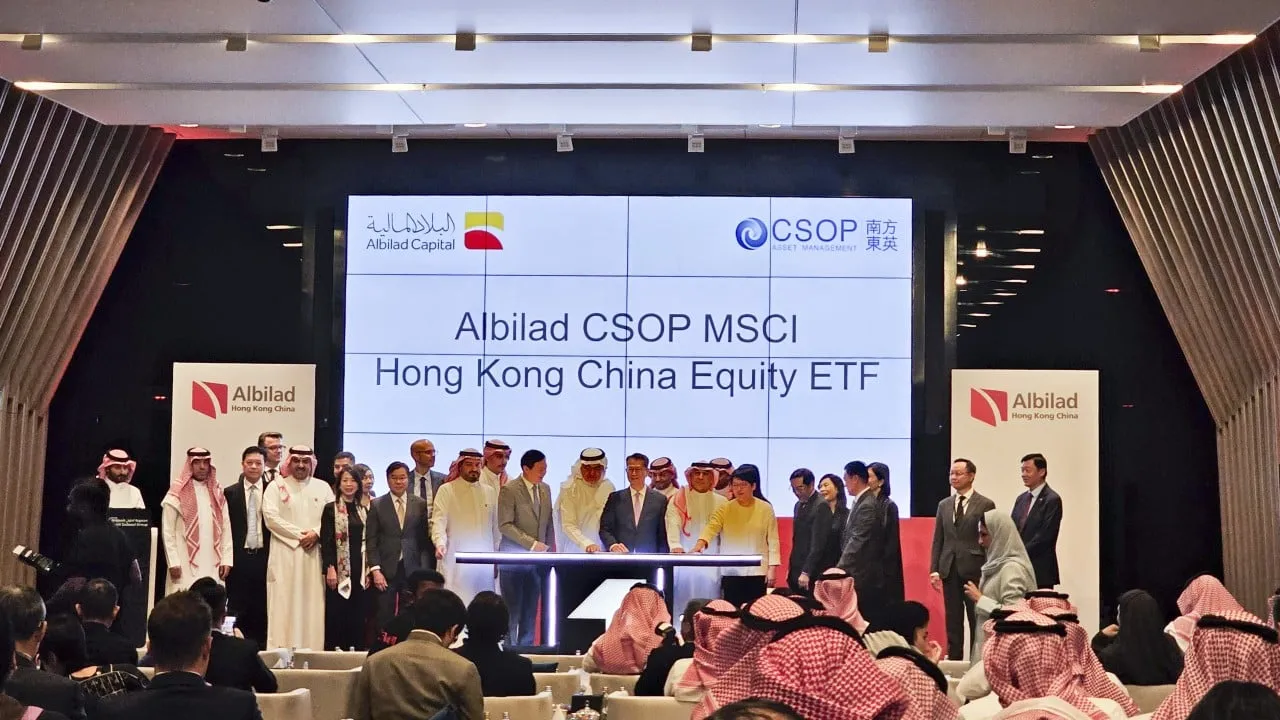Albilad Capital Launches Landmark ETF Tracking Hong Kong Stocks at FII Summit

The Albilad CSOP MSCI Hong Kong China Equity ETF (Albilad ETF) marks a historic milestone as Saudi Arabia's first index fund targeting Hong Kong stocks. On its debut on the Saudi Stock Exchange (Tadawul), the ETF opened at 10.02 Saudi riyals per unit—an increase of 0.002 percent. Trading under the stock code 9410, this innovative fund has drawn in over US$1.2 billion, solidifying its status as the largest ETF listing in the Middle East, as indicated by Bloomberg data.
Investors can start trading with as little as 10 riyals (US$2.66) for an ETF unit, which tracks the 30 top companies in Hong Kong that uphold sharia compliance. Unlike the Hong Kong stock exchange's ceremonial gong for new listings, Tadawul opted for a simpler approach, with company executives marking the occasion with a press of a button.
The listing ceremony welcomed Hong Kong's Financial Secretary, Paul Chan Mo-po, who is attending the FII Summit in Riyadh. Chan expressed enthusiasm for future cross-border listings, highlighting the importance of this new fund in supporting a growing ETF market within Saudi Arabia while diversifying Hong Kong's capital sources.
Key figures present included CSOP Asset Management CEO Ding Chen, HKEX chairman Carlson Tong Ka-shing, and Hong Kong Science and Technology Parks (HKSTP) CEO Albert Wong Hak-keung, who recently signed an agreement with Saudi incubator Beta Lab for potential funding of startups in the region.
The Albilad ETF completes a circle of capital flow between the Middle East and Hong Kong. Last November, CSOP introduced a HK$10 billion (US$1.28 billion) ETF in Hong Kong, focused on listed stocks from the Tadawul. Notably, the Albilad ETF has chosen to focus on companies like Meituan and Techtronic, while excluding firms such as HSBC and Tencent due to non-compliance with sharia guidelines.
Ding explained the necessity of launching an ETF that aligns with sharia for the predominantly sharia-compliant retail investor base in Saudi Arabia.
This article was prepared using information from open sources in accordance with the principles of Ethical Policy. The editorial team is not responsible for absolute accuracy, as it relies on data from the sources referenced.